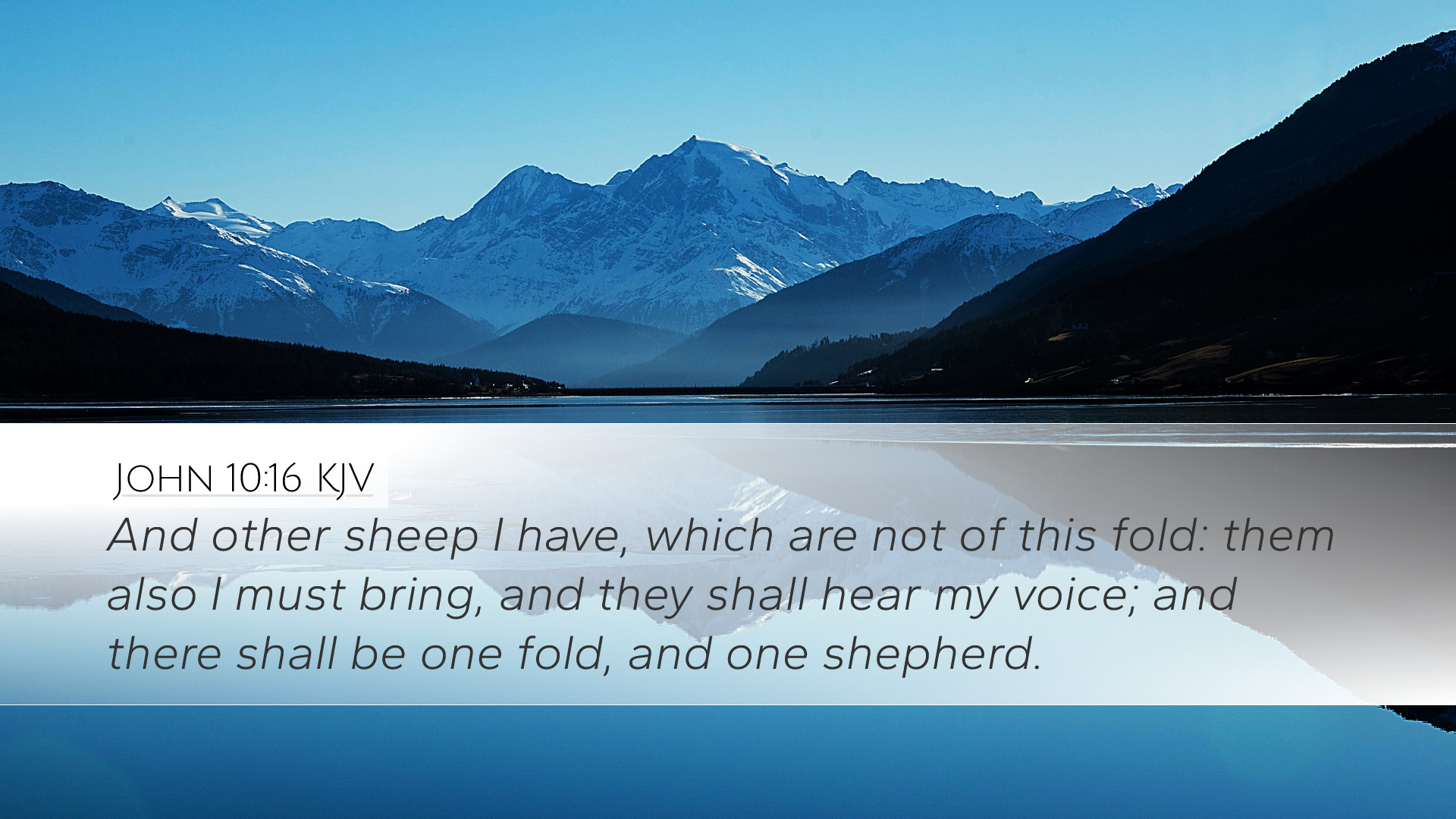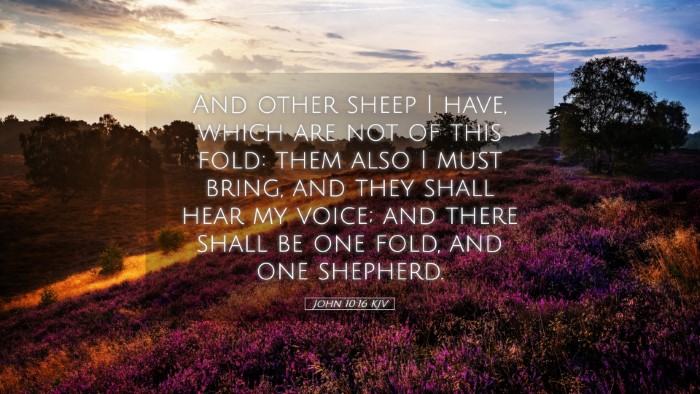Commentary on John 10:16
Verse: “And other sheep I have, which are not of this fold: them also I must bring, and they shall hear my voice; and there shall be one fold, and one shepherd.”
Introduction
This verse forms part of Jesus' profound discourse on His role as the Good Shepherd, accentuating the inclusivity of His mission. It is imperative for scholars and theologians to recognize the broader implications of Christ’s statement regarding His “other sheep.” The richness within this verse speaks to both the historical and eschatological dimensions of the Gospel message.
Contextual Analysis
In the context of John's Gospel, Jesus is addressing the Pharisees after healing the blind man. The metaphor of the shepherd contrasts with the neglectful leaders of Israel, emphasizing His care for all people. The imagery evokes the Davidic shepherd-king, reinforcing the hope of salvation extending beyond the Jewish nation.
Commentary Insights
Matthew Henry
Henry emphasizes the significance of the term “other sheep,” suggesting that these represent the Gentiles or those outside the covenant community of Israel. He articulates that Jesus’ mission was transcendent, aiming to unite diverse peoples under one spiritual leadership. Henry notes, “Jesus must bring them”—highlighting the divine compulsion that drives the shepherd to seek out his flock.
Albert Barnes
Barnes provides a theological examination of this verse, asserting that it reflects Jesus' foreknowledge and intentionality. He posits that the “other sheep” encapsulate those not currently embraced within the Jewish fold, depicting the radical inclusivity of Jesus’ ministry. Barnes writes, “They shall hear my voice;” which implies a future response to the Gospel by all nations, a fulfillment embraced in the Great Commission.
Adam Clarke
Clarke offers a pastoral approach, emphasizing the comfort derived from Christ's promise to gather His people. He suggests that the veracity of hearing His voice is foundational for faith and unity within the Church. Clarke articulates, “there shall be one fold, and one shepherd,” directing attention to the ultimate goal of unity in Christ. He presents a vision of a singular community, welcoming all who respond to the Shepherd's call.
Theological Implications
The implications of John 10:16 reach into the core of ecclesiology. The mention of a single fold indicates that true community within the Body of Christ transcends cultural, racial, and religious barriers. This reinforces the necessity for modern Church leaders to remain inclusive, embracing diversity while maintaining unity in Christ.
Practical Applications
- Mission Focus: Pastors are reminded of their imperative to reach out beyond their immediate communities, echoing the mission of Christ to seek and save the lost.
- Unity in Diversity: This verse calls for an understanding that the Church is enriched by the diversity of its members, and that the seeking nature of Christ should resonate within congregational practices.
- Listening to His Voice: There is a need for believers to cultivate a sensitivity to the voice of Christ as He calls, which requires discernment and a commitment to prayer and spiritual discipline.
Conclusion
John 10:16 is a pivotal verse that encapsulates the grandeur of Jesus’ mission. By broadening His focus beyond Israel, He reveals a vision of inclusivity and unity in His kingdom. For pastors, scholars, and students alike, understanding the implications of this verse is crucial for cultivating a mission-centered, diverse, and unified Church in a world that increasingly needs the voice of the Good Shepherd.


